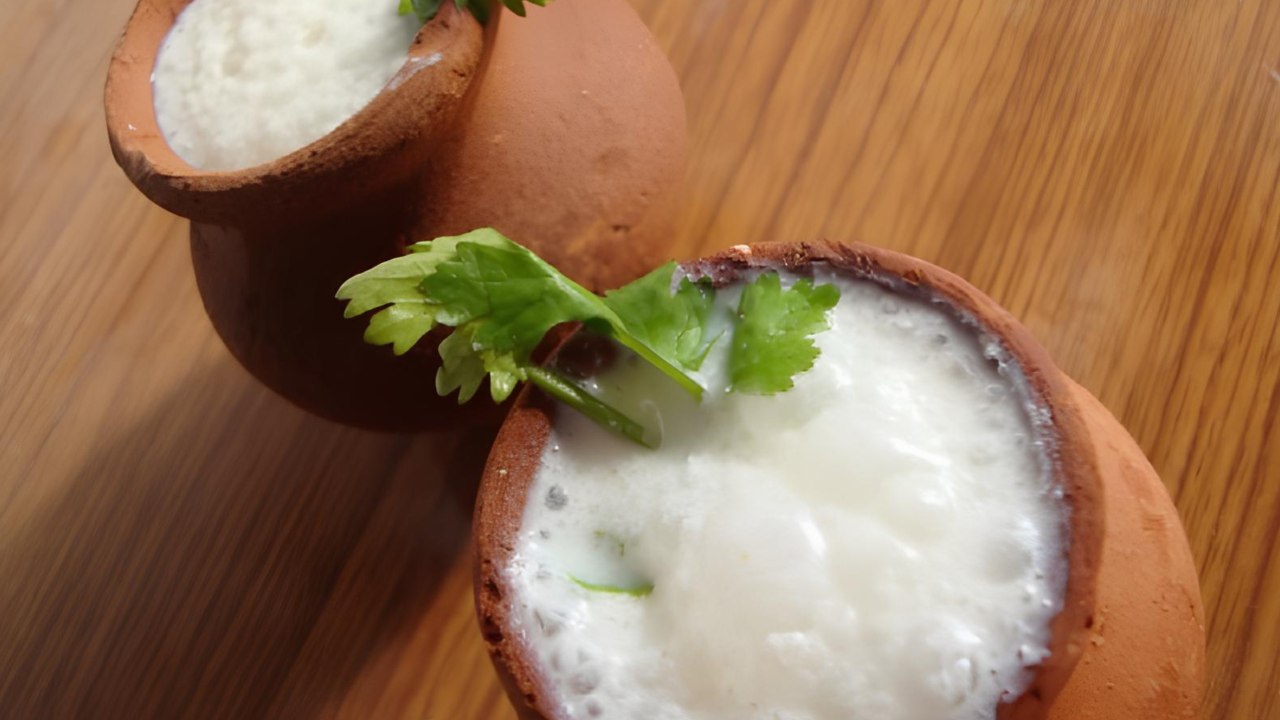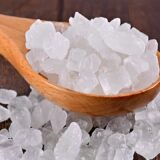Top 10 Health Benefits of Yogurt (Dahi) for Your Body and Mind
Yogurt, known as “Dahi” or “Curd” in India, is a traditionally fermented dairy product. It is made through pasteurization or by souring boiled milk with natural microflora or harmless bacterial cultures. In the Indian subcontinent, dahi has held great significance since ancient times due to its numerous benefits. 
It is an essential part of the ritual ceremony called “Panchamrita,” a mixture of five foods often distributed as prasad at the end of pooja (prayers). Dahi is a versatile dairy product enjoyed in various ways. It can be consumed as part of a meal, as a refreshing drink, or as a dessert.
Typically, it is enjoyed in its natural form or transformed into a yogurt-based sauce called raita, which can include ingredients like grated cucumber or chopped boiled potatoes.
Additionally, dahi is used in dishes like “Dahi Vada,” which features fried dough pieces made from gram flour or pulses soaked in yogurt. It can also be blended into a sweet drink or salty lassi, and used in desserts mixed with sugar and fresh fruits like bananas, oranges, and mangoes.
Ayurvedic View on Dahi
From an Ayurvedic perspective, yogurt (Dahi or curd) is recognized for its distinctive properties and benefits. According to Ayurvedic texts, yogurt is sour in taste and is best made from cow’s milk, which is considered highly nutritious.
Dosha Effects:
- Yogurt is known to decrease Vata dosha while increasing Pitta and Kapha doshas. This makes it particularly beneficial for those with a Vata constitution, as it helps balance their innate qualities.
Sattvic Qualities:
- In Ayurveda, yogurt is regarded as the only fermented food that is classified as sattvic, which means it promotes purity and clarity of mind. It is recommended that yogurt be prepared fresh daily and consumed on the same day to retain its beneficial properties.
Digestive Benefits:
- Yogurt is easier to digest than milk. While milk takes about three hours to be digested, fresh yogurt takes approximately one hour. This quicker digestion is attributed to the fermentation process, which partially breaks down the milk proteins.
Health Benefits:
- Digestive Health: Yogurt is used in Ayurveda to treat various digestive issues, including dyspepsia and dysentery. Its probiotic properties help maintain a healthy balance of gut flora.
- Immune Support: The lactic acid bacteria in yogurt stimulate the production of antibodies by B and T cells of macrophages, boosting immune function.
- Nutritional Value: Yogurt provides a rich source of nutrients and is beneficial for bone health. It is considered a readily available, nutrient-dense food that supports overall health and well-being.
In summary, Ayurveda values yogurt for its digestive ease, nutritional benefits, and its role in balancing doshas, making it a key element in a healthful diet.
Ayurvedic Properties Of Curd (Dahi)
In Ayurveda, curd (Dahi) is characterized by several specific properties that define its effects on the body and mind. Here’s a detailed look at the Ayurvedic properties of curd:
1.Amla Rasa (Sour Taste):
- Curd has a sour taste, which influences its effects on the body, particularly in its digestive and metabolic actions.
2. Grahi (Absorbent):
- Curd has absorbent qualities, making it useful in treating diarrhea by absorbing excess moisture from the digestive tract.
3. Amla Paka (Sour Taste Conversion):
- After digestion, curd undergoes a transformation where its sour taste becomes less pronounced, but it retains some of its digestive benefits.
4. Guru (Heavy to Digest):
- Curd is considered heavy for digestion, which means it can be more challenging for the digestive system to process compared to lighter foods.
5. Ushna (Hot in Nature):
- Despite its sour taste, curd has a warming effect on the body, which can balance its cooling properties.
6. Vatajit (Balances Vata):
- Curd helps to balance Vata dosha, making it beneficial for individuals with Vata imbalances, such as those experiencing dryness or irregularities.
7. Increases Shukra (Semen):
- Regular consumption of curd is believed to enhance the quality and quantity of Shukra (semen), contributing to reproductive health.
8. Rochishnu (Increases Taste):
- Curd stimulates the taste buds, enhancing the overall flavor of meals and improving digestion.
9. Increases Bala (Strength):
- It helps in increasing physical strength and vitality, supporting overall health and endurance.
10. Increases Meda (Fat):
- Curd has the potential to increase Meda (body fat), which can be beneficial for those needing to gain weight or improve their body’s nutritional reserves.
11. Helpful in Raktapitta (Bleeding Disorders):
- Curd can be helpful in managing Raktapitta, a condition associated with bleeding disorders, due to its ability to help regulate blood flow and support overall health.
In summary, Ayurveda recognizes curd as a beneficial food with a range of properties that support digestion, balance doshas, and enhance overall health.
Its sour taste, warming nature, and various effects on the body make it a valuable addition to a balanced diet.
Top 8 Ayurvedic Benefits Of Curd (Dahi)
In Ayurveda, curd (Dahi) is valued for its wide range of health benefits, which are attributed to its unique properties and effects on the body. Here’s a detailed look at the Ayurvedic benefits of curd:
1. Rochana (Improves Taste, Appetizer):
- Curd enhances the taste of food and stimulates appetite, making it an effective appetizer and aiding in the enjoyment of meals.
2. Deepana (Improves Digestive System):
- It supports and improves digestion by stimulating digestive fire (Agni), helping to break down food more effectively and promoting overall digestive health.
3. Balavardhana (Improves Immunity):
- Curd strengthens the immune system by nourishing the body and enhancing its ability to fight infections and diseases.
4. Brumhana (Improves Nourishment):
- It contributes to overall nourishment and helps in building bodily tissues, providing essential nutrients and energy for growth and repair.
5. Aruchi (Anorexia, Lack of Interest in Food):
- Curd can help stimulate appetite and combat anorexia or a lack of interest in food, making it beneficial for those struggling with diminished hunger.
6. Vrushya (Aphrodisiac):
- It is considered to have aphrodisiac properties, potentially enhancing sexual vitality and reproductive health.
7. Snehana (Imparts Oiliness):
- Curd has a nourishing and moisturizing effect on the body, imparting oiliness and helping to maintain skin and tissue health.
8. Mangalya (Auspicious):
- In Ayurvedic tradition, curd is considered auspicious and beneficial for overall well-being, often used in rituals and daily dietary practices for its positive effects.
In summary, curd is highly regarded in Ayurveda for its ability to enhance taste, improve digestion and immunity, and nourish the body.
It also stimulates appetite, supports reproductive health, and provides beneficial properties that contribute to overall well-being.
Top 10 Ayurvedic Uses Of Curd (Dahi)
In Ayurveda, curd (Dahi) is used for a variety of therapeutic purposes due to its beneficial properties. Here’s how curd is applied in different health conditions:
1. Atisara (Diarrhea):
- Curd is known for its absorbent qualities, which can help manage diarrhea by absorbing excess moisture from the digestive tract and restoring normal bowel function.
2. Pinasa (Rhinitis):
- Curd may help soothe symptoms of rhinitis, such as nasal inflammation and congestion, due to its cooling and anti-inflammatory properties.
3. Sheetaka (Fever with Cold):
- For fever accompanied by cold, curd’s cooling nature can provide relief and help balance the body’s internal heat, thereby easing discomfort.
4. Vishamajwara (Irregular Fever):
- In cases of irregular or intermittent fever, curd can aid in stabilizing body temperature and providing relief from fever-related symptoms.
5. Mutrakrichra (Dysuria, Difficulty Passing Urine):
- Curd can help soothe and ease symptoms of dysuria by providing a cooling effect and supporting urinary tract health.
6. Karshya (Nutritional Disorder):
- Curd is beneficial for addressing nutritional disorders, as it helps in improving appetite, digestion, and overall nourishment, thereby supporting better nutritional intake.
7. Kasa (Cough):
- Curd can help alleviate cough by soothing the throat and reducing irritation. Its cooling and lubricating properties may help calm persistent coughs and support respiratory health.
8. Udarshoola (Abdominal Pain):
- Curd can be beneficial for relieving abdominal pain or discomfort. Its digestives properties help soothe the digestive tract and reduce bloating and cramping.
9. Vishama Agni (Irregular Digestion):
- In cases of irregular or weak digestion, curd aids in balancing digestive fire (Agni). It helps in improving the digestive process and alleviating symptoms of indigestion.
10. Danta Shodhana (Dental Health):
- Curd can be used to support oral health. Its probiotic content helps maintain a healthy balance of bacteria in the mouth, which can contribute to better gum and teeth health, potentially reducing issues like gum inflammation and bad breath.
In summary, curd is utilized in Ayurveda for its therapeutic effects on various conditions such as digestive issues, respiratory problems, fevers, urinary difficulties, and nutritional disorders.
Its versatility and health benefits make it a valuable component of Ayurvedic treatment and wellness practices.
Top 10 Health Benefits of Curd (Dahi)
Curd (Dahi) offers a range of health benefits, including improved digestion, enhanced immunity, and support for overall well-being. Below are some of them.
1. Improves Digestion:
Curd contains probiotics, beneficial bacteria that enhance the gut microbiome. These probiotics aid digestion by breaking down food more efficiently and preventing digestive disorders like bloating and constipation. Additionally, they help in managing irritable bowel syndrome (IBS) and improving overall gastrointestinal health.
2. Boosts Immune System:
The live cultures in curd stimulate the production of immune cells, enhancing the body’s defense mechanisms. Regular consumption of curd can strengthen the immune system, making it more effective at combating infections and illnesses. It also helps reduce the incidence of common colds and infections.
3. Enhances Nutrient Absorption:
By improving gut health, curd facilitates better absorption of essential nutrients from the diet, such as vitamins and minerals. This enhanced absorption ensures that the body receives the maximum benefit from the foods consumed, supporting overall health and vitality.
4. Supports Bone Health:
Rich in calcium, phosphorus, and vitamin D, curd plays a crucial role in maintaining bone health. It helps in the formation and maintenance of bone density, reducing the risk of osteoporosis and fractures. This makes it particularly beneficial for growing children and aging adults.
5. Promotes Healthy Skin:
The probiotics in curd help maintain a healthy balance of bacteria on the skin, which can reduce acne and other skin conditions. Additionally, the vitamins and minerals in curd, such as vitamin B12 and zinc, contribute to a glowing complexion and overall skin health.
6. Aids in Weight Management:
Curd is a high-protein, low-calorie food that can help in weight management by promoting satiety and reducing hunger. The protein content aids in muscle repair and growth, while the probiotics may help in regulating metabolism and reducing body fat percentage.
7. Regulates Blood Pressure:
The potassium in curd helps to balance sodium levels in the body, which can prevent high blood pressure. Consuming curd regularly can contribute to cardiovascular health by maintaining normal blood pressure levels and supporting overall heart function.
8. Boosts Mental Health:
Probiotics in curd can influence the gut-brain axis, which is linked to mental health. By promoting a healthy gut microbiome, curd may help alleviate symptoms of anxiety and depression, improving mood and cognitive function through its impact on neurotransmitter production.
9. Supports Heart Health:
The regular consumption of curd can improve heart health by reducing levels of LDL cholesterol and increasing HDL cholesterol. Its low fat and high protein content also contribute to better cardiovascular function, potentially lowering the risk of heart disease and stroke.
10. Provides Quick Energy:
Curd is a rich source of both protein and carbohydrates, making it an excellent energy-boosting food. It provides sustained energy release, which helps maintain stamina and vitality throughout the day, supporting physical activity and mental focus.
Q&A on Curd (Dahi)
Q1: What are the primary health benefits of consuming curd?
A1: Curd offers numerous health benefits, including improved digestion due to its probiotic content, boosted immune system, enhanced nutrient absorption, strong bones due to calcium and vitamin D, and better skin health. It also aids in weight management, regulates blood pressure, and provides quick energy.
Q2: How does curd help with digestion?
A2: Curd contains live probiotics, which are beneficial bacteria that support a healthy gut microbiome. These probiotics help break down food more efficiently, reduce symptoms of bloating and constipation, and improve overall digestive health by maintaining a balanced gut flora.
Q3: Can curd aid in managing weight?
A3: Yes, curd can aid in weight management due to its high protein content and low calorie count. The protein helps increase satiety and reduce hunger, while the probiotics may support a healthy metabolism and potentially assist in reducing body fat percentage.
Q4: Is curd beneficial for bone health?
A4: Absolutely. Curd is rich in calcium and vitamin D, both of which are crucial for maintaining strong and healthy bones. Regular consumption helps in bone formation and maintenance, reducing the risk of conditions such as osteoporosis and fractures.
Q5: How does curd support the immune system?
A5: Curd enhances the immune system by promoting the growth of beneficial bacteria that help the body fight infections. These probiotics stimulate immune cell production, improve gut health, and help in reducing the frequency of common illnesses.
Q6: Can curd be helpful for skin health?
A6: Yes, curd can benefit skin health due to its probiotics and nutrient content. Probiotics help balance skin bacteria, reducing acne and inflammation, while vitamins and minerals in curd, such as vitamin B12 and zinc, contribute to a healthy, glowing complexion.
Q7: How does curd impact mental health?
A7: Curd can positively influence mental health by affecting the gut-brain axis. The probiotics in curd support a healthy gut microbiome, which can help alleviate symptoms of anxiety and depression and improve overall mood and cognitive function.
Q8: What role does curd play in regulating blood pressure?
A8: Curd helps regulate blood pressure due to its potassium content, which balances sodium levels in the body. This helps in preventing high blood pressure and supports cardiovascular health, contributing to better heart function.
Q9: How does curd provide quick energy?
A9: Curd provides quick energy through its combination of protein and carbohydrates. It delivers sustained energy release, helping to maintain stamina and vitality throughout the day, which is beneficial for both physical activity and mental focus.
Q10: Can curd be used for specific health conditions like diarrhea or cough?
A10: Yes, curd can help with various health conditions. It is beneficial for managing diarrhea due to its absorbent properties, and it can soothe a cough by calming the throat and reducing irritation. Additionally, it can aid in other conditions like rhinitis and irregular fevers.
Resources:


























WOWOWOWWOWOOWOOWOWO